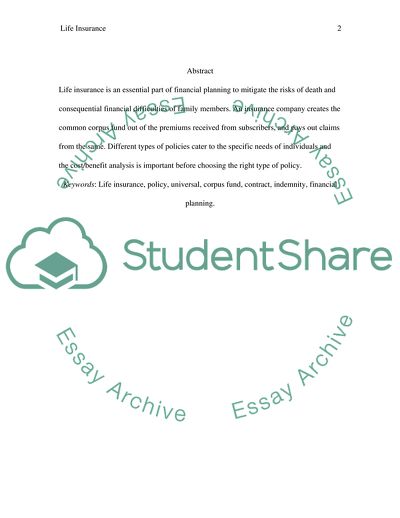Analyze life insurance and the role it plays in risk management Essay. https://studentshare.org/finance-accounting/1762738-analyze-life-insurance-and-the-role-it-plays-in-risk-management
Analyze Life Insurance and the Role It Plays in Risk Management Essay. https://studentshare.org/finance-accounting/1762738-analyze-life-insurance-and-the-role-it-plays-in-risk-management.


